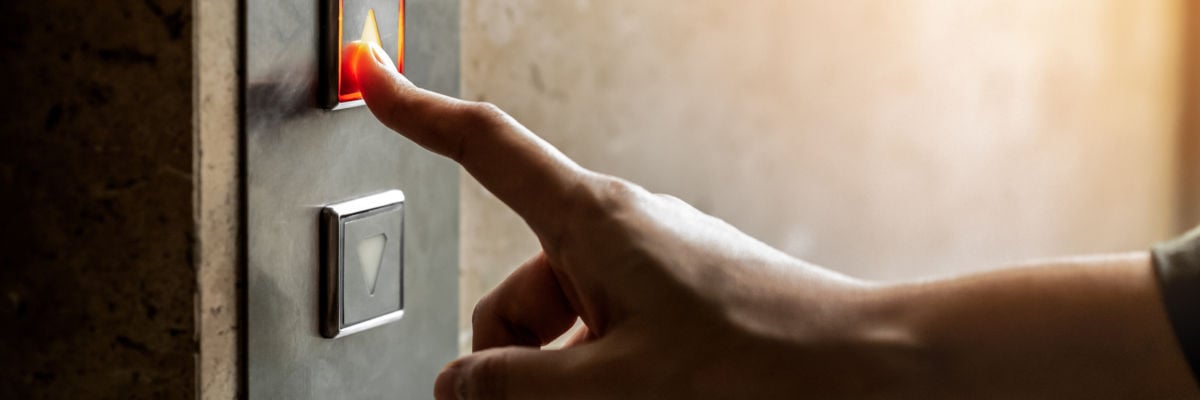
Not long ago, I was talking to a priest about someone we knew who was in poor health. This was, by any measure, a good person, with many admirable qualities. But he was not Catholic. I told the priest my hopes that the person’s poor health might lead him to more seriously consider the Church and its claims. “Well,” the priest said, “he was raised Protestant, so that’s still very good.”
Is it?
I confess that I can be tempted to downplay the severity of the choice for or against Christ and his Church when those I love are nearing death or have died. If it’s the case of a nominal or fallen-away Catholic, I think (and pray) he’s got a good shot of reconciling with the Church before the end. If he’s a Protestant, I think about his faith in Christ. And if he is simply a good person, maybe with a vague belief in God and the power of prayer, I think perhaps by some wonderful act of divine grace and mercy, he’ll receive the gift of faith and repent in his final moments, even if none of us precisely witnesses it.
Anyone who thinks about such things is familiar with the relevant Catholic terminology and beliefs. We may cite the Catechism’s teaching of baptism of desire: “For catechumens who die before their baptism, their explicit desire to receive it, together with repentance for their sins, and charity, assures them the salvation that they were not able to receive through the sacrament” (1259). Or we evoke the concept of baptism of blood: “The Church has always held the firm conviction that those who suffer death for the sake of the Faith without having received baptism are baptized by their death for and with Christ. This baptism of blood, like the desire for baptism, brings about the fruits of baptism without being a sacrament.”
There’s also invincible ignorance, the Catholic teaching that those who are truly ignorant of the Catholic Church and its teachings will not be held accountable for what they could not know. We read in Lumen Gentium, one of the documents of the Second Vatican Council:
Those also can attain to salvation who through no fault of their own do not know the Gospel of Christ or His Church, yet sincerely seek God and moved by grace strive by their deeds to do His will as it is known to them through the dictates of conscience (16).
As Joe Heschmeyer noted, this means we’ll be judged based on what we know, not what we don’t know. Moreover, anyone who has read Evelyn Waugh’s Brideshead Revisited can retain hope that his loved one, even after he has lost the ability to speak, will offer some small gesture, such as a sign of the cross, communicating that he believes and repents.
But, you know, there are a lot of “ifs” with this kind of speculation. If a non-Catholic in some way possesses faith in Christ, if that non-Catholic has invincible ignorance regarding the gospel or the claims of the Catholic Church, if he’s repentant for his sins. If, if, if.
It’s one thing to begin these speculations once a friend is in the ICU or on his deathbed. It’s another thing to allow this kind of thinking about salvation to permeate our daily lives and interactions, or how we represent the Catholic faith to others. That’s especially the case in a culture like our own, which proclaims “tolerance” and “acceptance” as virtues greater than faith.
Perhaps you’ve been in this scenario: you are talking with a friendly, non-Catholic co-worker or neighbor about religion. The person asks you if Catholicism teaches that only Catholics go to heaven. What do you say? What did you say? Did you quote St. Paul: “For by grace you have been saved through faith; and this is not your own doing, it is the gift of God—not because of works, lest any man should boast” (Eph. 2:8-9)? Did you cite the Catechism’s teaching that “the Church does not know of any means other than baptism that assures entry into eternal beatitude”? Or did you mention invincible ignorance, that your friend might not worry too much that you think he is destined for hell?
Now, I’m not saying we need to keep doctrines like invincible ignorance hidden from non-Catholics, analogous to how Calvinists often avoid talking about the terrifying doctrine of double predestination, or how members of the Church of Latter-day Saints demur on some of the stranger elements of their cosmology. But, given my own temptation to avoid bluntly telling non-Catholics that the Church teaches that the ordinary means of salvation are faith and baptism, I wonder how much we employ it and other Catholic teachings to “keep the peace” or comfort non-Catholics. I have told non-Catholics about invincible ignorance, only to ask myself afterward, Why didn’t you just say the best remedy for avoiding hell is being Catholic?
I can appreciate why a priest, trying to be pastoral, would comfort the aggrieved by telling them to hope and trust that their non-Catholic loved one will be okay. There is always reason to have hope, even at the end. Yet we shouldn’t allow that hope to obscure some basic facts: Christ calls us to repentance; he calls us to faith and baptism; he demands of us a moral life; and, if we fail, we are to retreat to the sacrament of reconciliation. Even a pious, regular communicant can endanger his soul through mortal sin, especially in a culture that celebrates immorality.
One of the most widely attested beliefs of the early Church is extra ecclesiam nulla salus: “Outside the Church there is no salvation.” Even those who might achieve heaven despite not being a baptized Catholic in a state of grace are still saved through Christ’s Church. And, pace the musings of Orthodox theologian David Bentley Hart, we do not have good reasons to believe that most people, even those never baptized, will enter heaven this way. Indeed, we have Christ’s words to suggest the exact opposite: “Enter by the narrow gate; for the gate is wide and the way is easy, that leads to destruction, and those who enter by it are many. For the gate is narrow and the way is hard, that leads to life, and those who find it are few” (Matt. 7:13-14).
The next time we’re inclined to presume that everything will be okay for our non-Catholic loved ones, we would do well to remember those verses. For, in truth, 10,000 “ifs” about what might happen don’t equal a simple, well timed “yes” to Jesus’ offer of eternal life.



